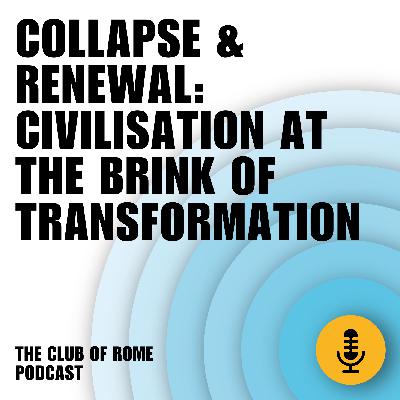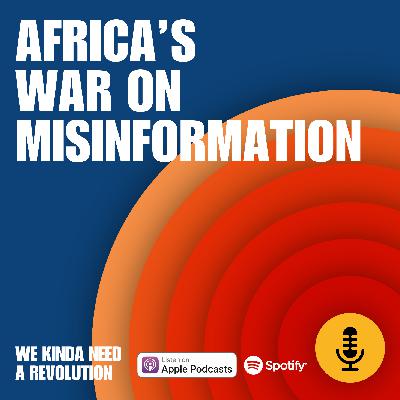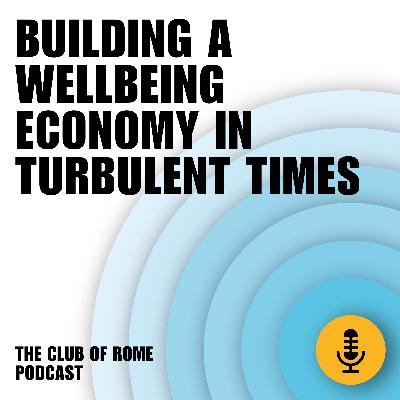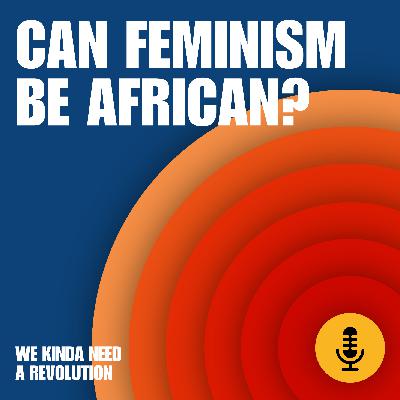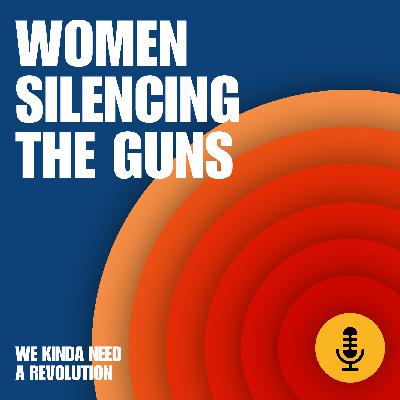Building climate resilience with vulnerable city dwellers with Sheela Patel and Philippa Nuttall
Description
1 billion urban citizens live in informal settlements like slums and shanty towns, vulnerable to the most extreme impacts of climate change - flooding, prolonged drought and unprecedented heatwaves. India is in the eye of this storm — in May 2024, places in northern India, including Delhi, were suffering under temperatures as high as 50C, with those experiencing poverty most affected.
In this episode Philippa Nuttall is joined by Sheela Patel, activist, founding director of the Society for the Promotion of Area Resource Centers and member of The Club of Rome to talk about the challenges faced by informal communities and the need for the experiences of these often excluded citizens, particularly women, to contribute to ensure effective climate initiatives and urban planning.
Watch the video:
Full transcript:
Philippa: Welcome to the Club of Rome podcast exploring the shifts in mindset and policy needed to transform the complex challenges facing us today. I'm Philippa Nuttall, a freelance journalist and editor of Sustainable Views. And in this episode, we're going to be talking about climate resilience. I'm going to be speaking to Sheela Patel, the founder and director of The Society for the Promotion of Area Resource Centres, which is an NGO based in Mumbai in India that has been working since 1984 to support community organisations of the urban poor to secure housing and basic amenities. Sheela, thank you for being with us today. It's a great pleasure to speak to you.
Sheela: Me too.
Philippa: To kick us off. Perhaps you can explain to us what we mean by climate resilience and what's your interest in the subject?
Sheela: We believe that for any change to happen, behaviour, values, investments, knowledge, transitions have to happen in communities who are vulnerable, with all of us who are professionals who work with them. One of the flaws of the past development paradigm has been that we treat poor communities like charitable beneficiaries of whatever we throw at them, and we expect them to be very substantial and benevolently accept everything. And if it doesn't work for them, they don't take it. So we have worked very hard to produce strategies in which the transition produced by new knowledge for any change we believe has to happen across the board. So when we approached climate, which was not very long ago, just before the Paris Agreement, we were very uncomfortable with these silos that emerged in development and climate right from the UN, down. In the lives of poor people it's all meshed up and it's integrated. And therefore we believe that it's as important for communities to understand what is adaptation for changing your resilience, to dealing with unplanned episodes of climate, of extreme weather, that are now coming faster and faster at all of us, how they have to acknowledge themselves as first defenders whenever any crisis happens, and to take on that role seriously in making representation, in producing data, in producing evidence and demanding accountability from state and non state actors, while making their own contributions. So this is the way in which we work and we bring that same process into the climate space.
Philippa: Thanks. And sort of concretely, what have you been actually doing in the area of climate resilience with the urban poor to help them achieve the aims that you've just outlined?
Sheela: So a lot of our work has been to learn, as professionals working with communities, what is the climate science, theorisation and practical action, what does it mean in the lives of poor people? And what we explored together with community women was that extreme weather of wind, of high velocities, rain that came down in sheets, in ways and times that people didn't understand, and heat, which are the most common things that people experience when they live informally, was impacting every element of their lives. And in the conversation that we have with women, we started a campaign called What Women Want, which is to ask women leaders of very poor communities, not only in India, but through Slum Dwellers International's network of women leaders collectives in almost 17 countries, of what were the challenges that they were facing? And there were lots of challenges, but their priorities was their homes, which is symbolic by saying that their roofs were just unable to deal with extreme weather. The roofs flew away, they leaked, and they made their homes into ovens, and they didn't know what to do with it because that didn't happen 15 years ago. The second thing they said is that COVID demonstrated to them that food that was not grown nearby was completely inaccessible to them when there were curfews and where there were problems. So food, health. COVID brought out all the ways in which we don't look at the social determinants of health and the need for women to understand how climate was affecting both chronic and infectious diseases. So, health. The fourth one was transport. We all know in COVID, we were all stuck at home, but poor women had to go and work, and they had to find informal transport, which often ended up being as much as the wages that they earned. And so all these helped us look at the flaws in how our cities coped with crisis and how it impacted poor people. And the last one, which was traumatic. And interestingly, this was long before, you know, the climate change process understood the concept of losses and damages. They basically talked about how their lives are completely destroyed equally by physical demolitions of their homes, by their cities, and by climate episodes. There's no difference in our lives whether it's done by the city and bulldozers, whether it's done by a cyclone or something like that. So these kind of insights, the starkness of what was not designed to include them, like, for instance, all our cities all over the world, and definitely in the global south, are putting in a lot of investment in public transport to try and get more and more people out of cars into public transportation. Well, they're designed in a way that has nothing to do with informal settlements. So people have to use informal tuk tuks and bicycle rides and all those and walking to reach a public transport point. And as the public transport gets more and more sanitised to attract people like you and me. It got more and more expensive. So a lot of our work is now attempting to produce large groups of people all over the world, aggregating evidence to show what they needed and the starkness of what was not being done for them. And a very good example of that is the, is the campaign we started with the first of the five things called Roof Over Our Heads.
Philippa: Before we go into the campaign specifically, could you explain to us a little bit why you're working specifically with women rather than men?
Sheela: Several reasons. From the time we started this work 40 years ago, we realised that the challenges that we were picking up were not quick and easy wins. If you want tenure, you want basic amenities. We've often taken 15 or 20 years to get legislation. It's taken another ten years to actualise it in the form of investment that will produce evidence that such a thing is possible. All of us in our network, including the men we work with, say that men are, you know, men are very good at hundred metre dashes. You want something done quickly, you go to the guys, you want something that's going to take a long time, requires patience and perseverance and tenacity. You go to the women.
Philippa: And is also part of the reason for working with women, because they are particularly impacted, especially in some of these informal communities, in terms of having to, they're the ones that, I presume, put food on the table, who are responsible for the children, who could be impacted more if there is damage to the house, either through destruction, through the city being changed, or through climate impacts?
Sheela: Well, that's true, but I'm also very critical of campaigns, processes and projects that instrumentalise women. You know, everybody says, oh, you educate a woman and you educate the family, you give a loan to a woman and it invests. But nobody talks about that woman's emancipation, her ability to withstand pressure, to be subservient, who gives her voice and the right to make representation. So our work not only seeks to involve individualwomen, we create an aggregation of women's collectives, so that in all things where, you know, that's why you need social movements rather than projects. So we want to make this process such that it fulfils both aspects, that women learn to talk about themselves, they learn to represent themselves, they learn to negotiate. And the most powerful element that women bring through their advocacy is deep persistence.
Philippa: And could you perhaps use the project Roof Over Our Heads to give us some concrete examples of how what you mentioned as the theory is being put into practice?
Sheela: We're at a very early stage. What we are trying to do right now is to build a knowledge base to make an assessment of what is the resilience quotient index of their present homes. You know, it's like tomorrow, if you are living in Europe and your city has never faced real serious heat, then you've got to look at elements in your house that are not producing the ventilation, that are not producing the coolness, because your house was designed to hold in heat, not to give out heat. So you always have to make an assessment. Now, informal institutional arrangements, we have engineering companies and scientists who do that for us, so we just have to tick some boxes and we know what it is. But in the case of poor people, this doesn't exist because they build their own homes. It breaks, they upgrade it, they incrementally improve it. So what we are doing right now is th


